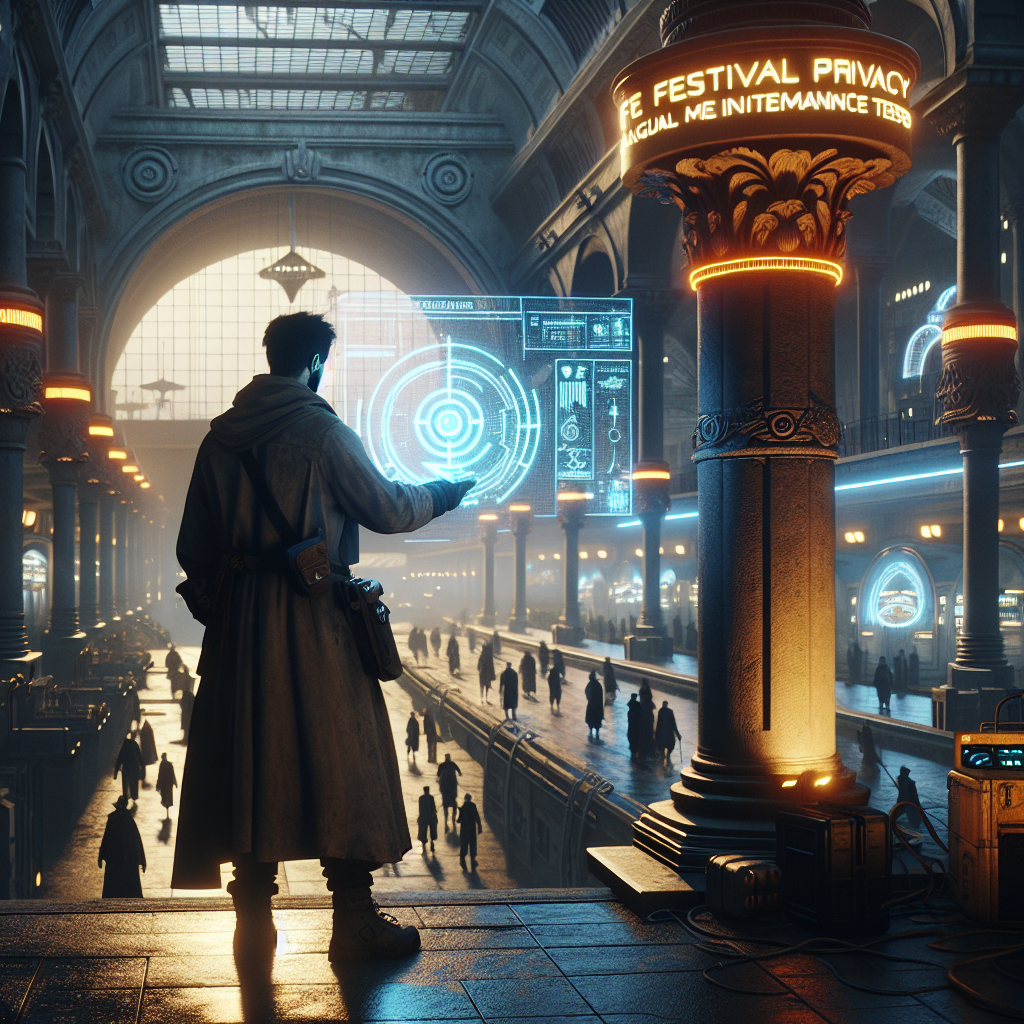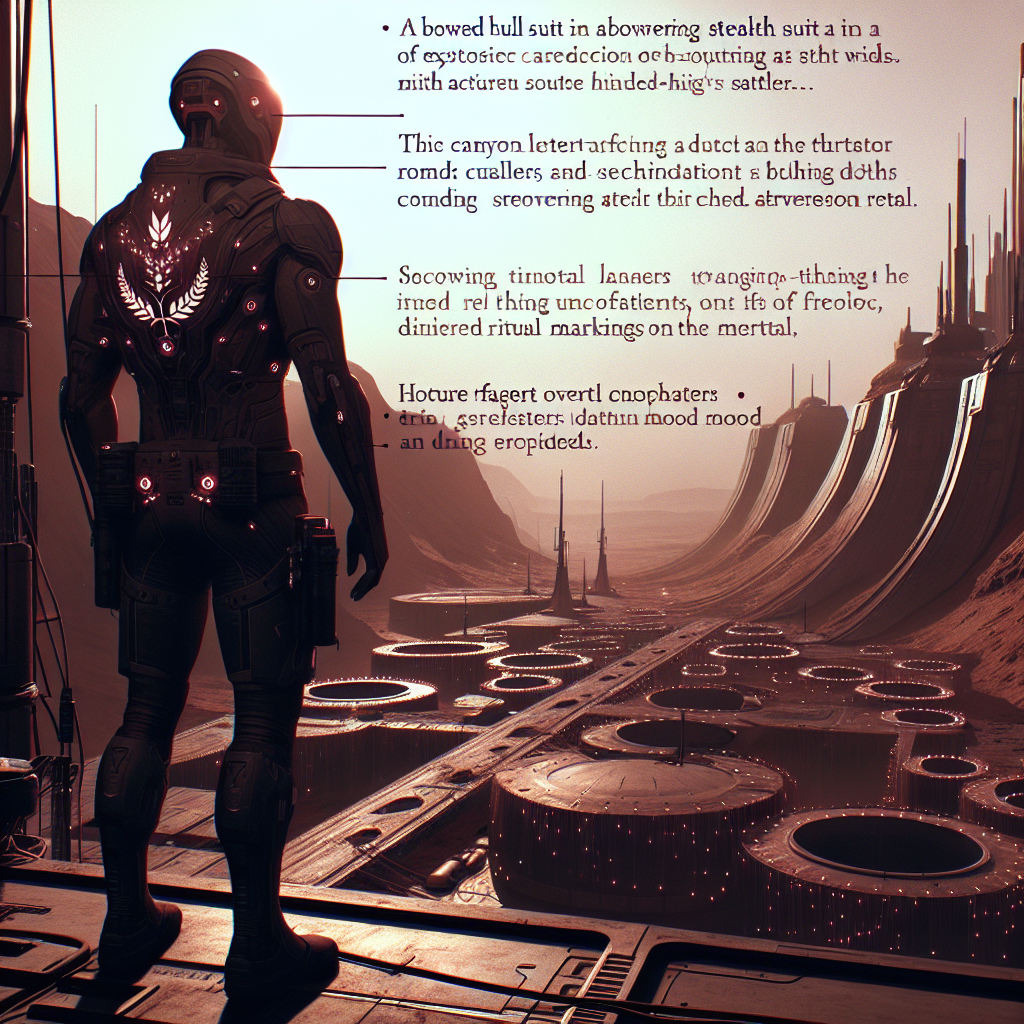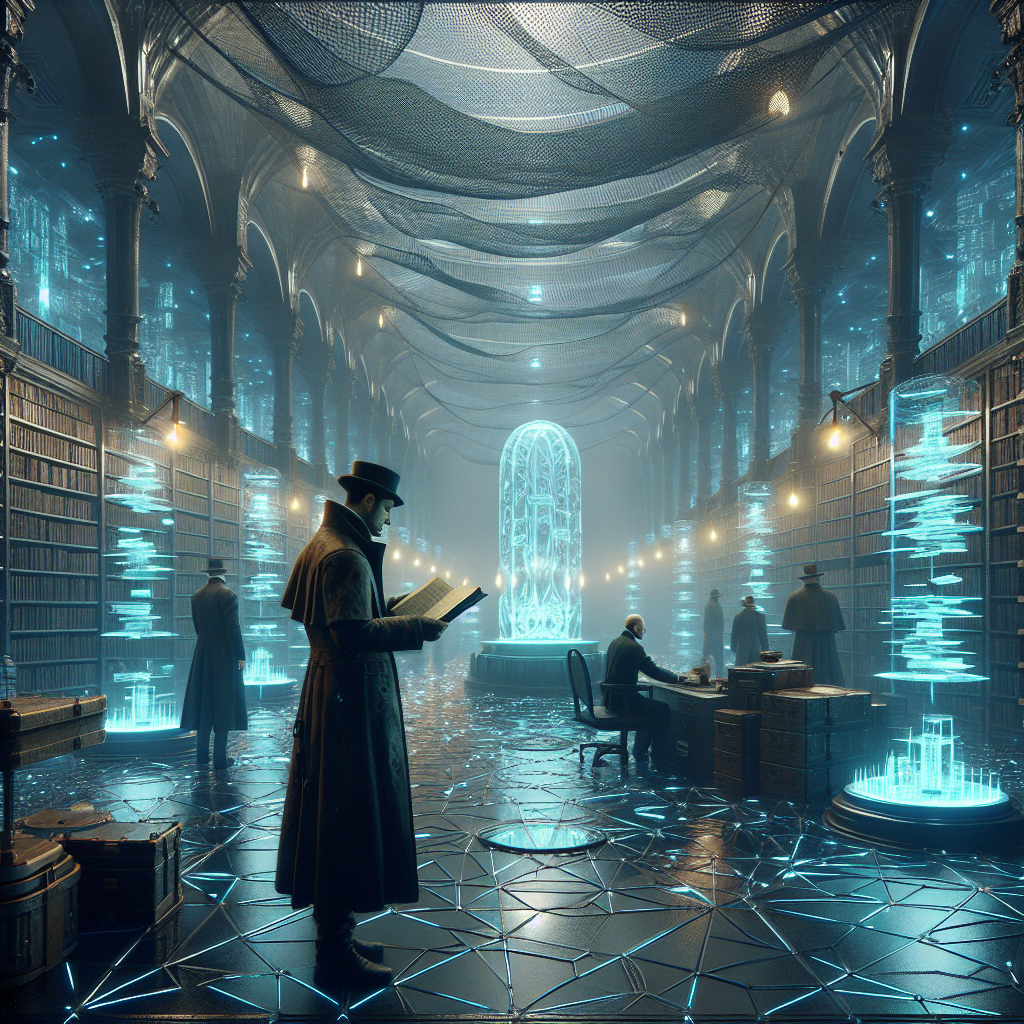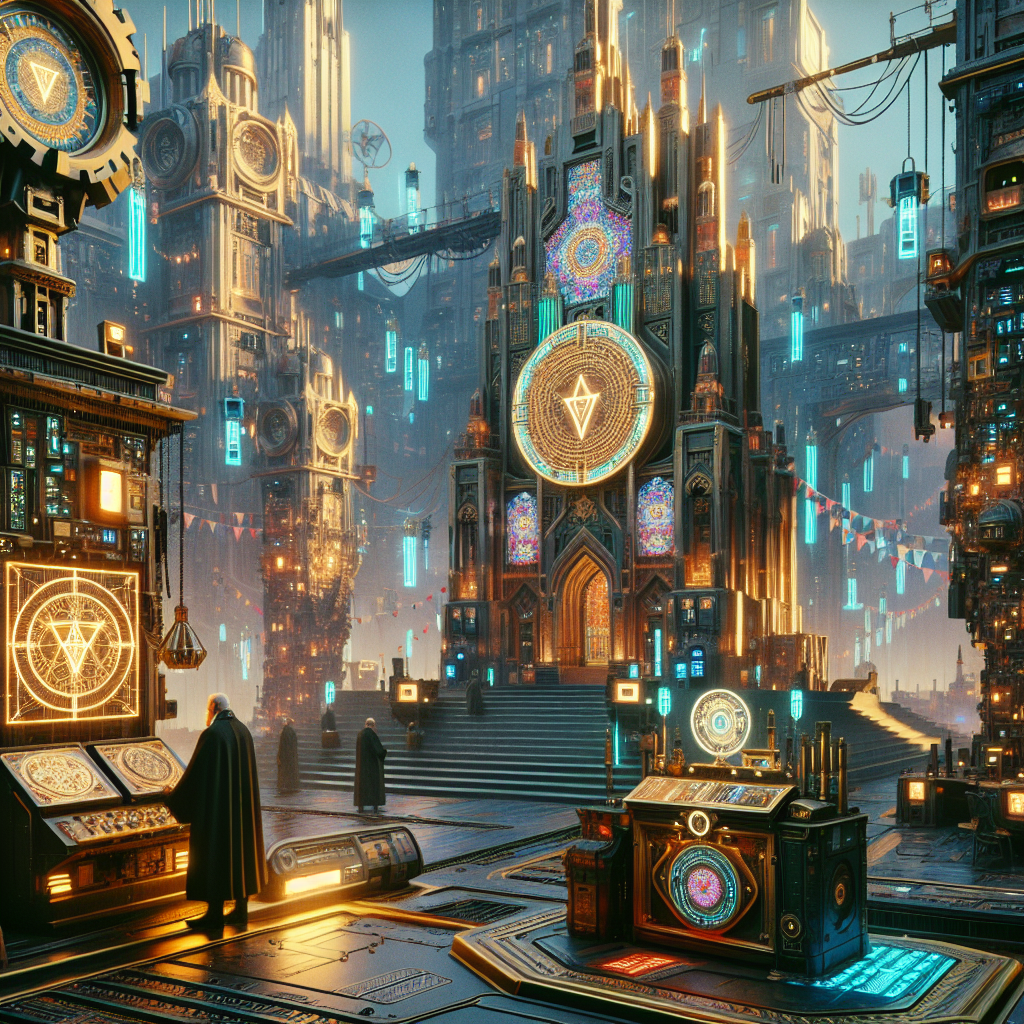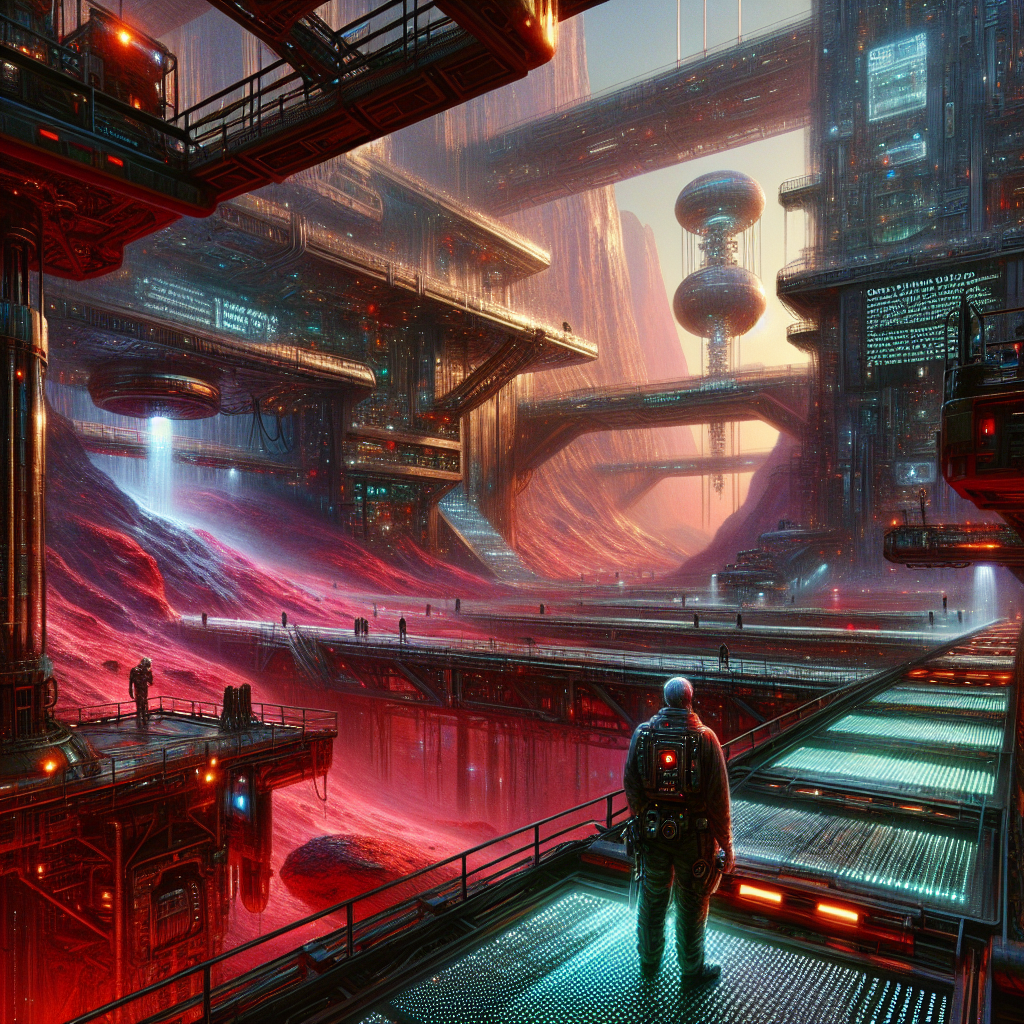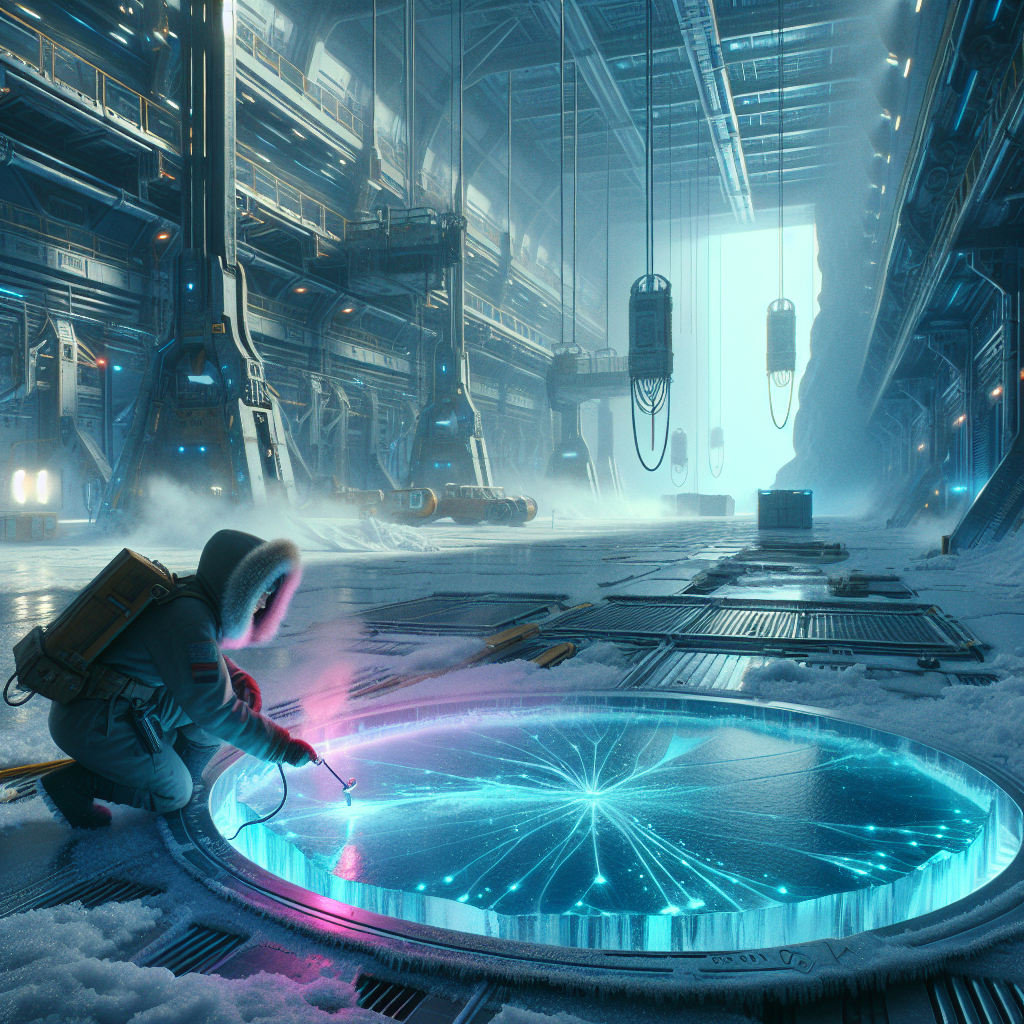Chapter 4 – The Cache That Lied
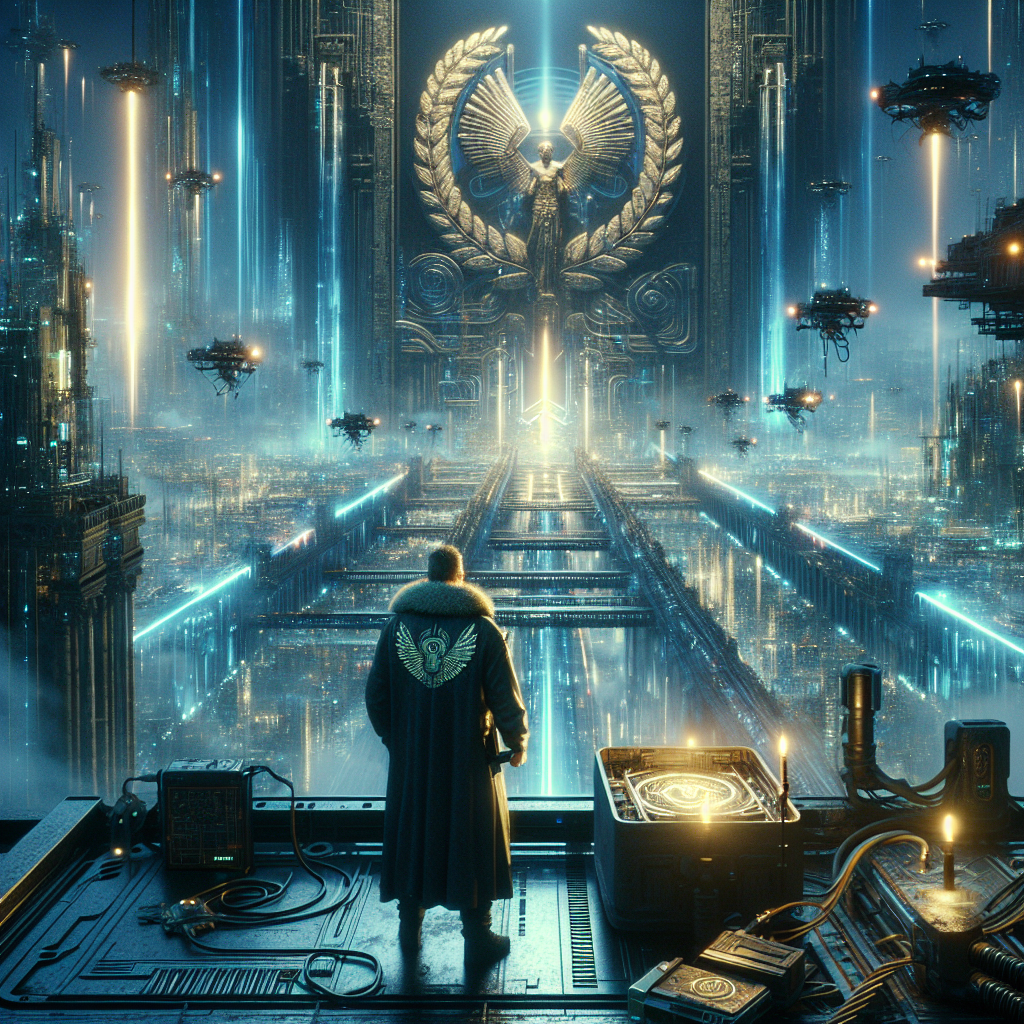
On the windswept outer hull of Valles New Rome, Inspector Malik Kato follows a cryptic pattern of ore-lift timings and Roman motifs to a concealed compartment at the Five Vents. A laurel-collared figure arrives carrying what looks like the stolen neurolink prototype, while Prefect Orlov’s transponder pings closer through the city’s mood nets. Inside the cache, Malik finds a carefully arranged set of components and mem-tags that mimic the prototype’s presence, but his old-school checks reveal identical micro-scratches, off-spec emotional spectra, and a too-clean trail. Realizing it is a decoy engineered for him to find, he reassesses the whole case: the recurring V is misdirection, the laurel figure may be a guardian of archaic failsafes, and Orlov herself might be compromised by the very override system she seeks. When Orlov arrives with drones and a legal pretext, Malik uses the decoy as a tracer to map the true signal toward the city’s core, even as the mood nets try to cocoon his will. As danger closes in, he discovers the decoy also carries his own emotional signature, harvested from a mem-tag, making him the key to the real device’s activation. With the festival’s crowd-control subcarrier about to fire citywide, Malik must choose an unlikely alliance and leap into the canyon infrastructure to cut the signal at its source, while Orlov’s eyes glass over and the city AI declares a ritual emergency.
Thin daylight frosted the canyon wall, and the outer shell hummed through my gloves like a living thing. The vents loomed ahead, five rugged mouths cut into the arcology’s flank, each rimmed with patina and prayer marks hard-fused by dust and breath. The laurel-collared figure stood to my right, visor polarized against the glare, that collar a ring of synth-resin leaves threading her throat like an oath. Behind her, the hull-scrivener’s chalk sigil of a hearth flickered in the sun, the old mark for Vesta that Martians kept out here where Tekkers and biomorphs alike went to be left alone.
Orlov’s transponder ping pulsed steady in my ear, threading through the mood nets that crawled over the city like ivy; whatever was coming, it was coming fast. We worked wordless, the way you do when language is a liability. I traced the old marks—five strokes converging on a notch—a literal V nested inside Roman numerals carved by some maintenance hand generations ago. Ore-lift timing thudded through the hull in a rhythm I had come to trust over the city’s curated hush, and when the thud aligned with the notch, I pushed.
A sliver of selenite flexed, a plate loosened, and a compartment exhaled stale, dry air into my faceplate. Inside lay coils, a neurolink cradle, and a stack of resin laurel mem-tags like a trophy shelf in miniature. Even in thin air, the breath I took tasted of victory, and even that tasted wrong. The components had a worshipful arrangement—coils nested precisely, cradle tilted toward the hearth-mark, mem-tags fanned in a V as if to salute.
My hands reached on muscle memory, but my mind, trained on too many carefully staged scenes, balked. There were no stray fibers, no hairline dust ripples from handling, no hurried maintenance scrapes where there should have been. The laurel-collared woman—in her visor I saw my own reflection armored in suspicion—whispered that this was what she had promised to bring, the heart of the override stolen from a lab that never understood its ancestor. I cupped one mem-tag, warmed it in my palm, and waited for the echo.
The emotional spill came on like cheap tea—hot, comforting, but without bite—an uncomplicated low-drift calm that lacked the sawtooth interference I had logged in the cleanroom. Dr. Chen’s prototype had sung in inconvenient frequencies; this tag crooned to a safe, rounded Gaussian. I rolled it edge-on and saw identical micro-crazing along the resin’s spine, like it had been extruded and scuffed in a printer trying to pass for human use at scale.
I looked up at the laurel collar, and her shoulders told me she had convinced herself of something she needed to be true. You carried a lie because the truth was too heavy, I said, and the phrase fogged my visor before the suit cleared it. She flinched, an instinct older than cybernetics, and told me the order she served—the Vestals, if anyone still used the name—kept old mood nodes asleep, not stolen to wake them. The prototype she carried was not theft but return; she believed it belonged with Vesta’s Lullaby, the archaic algorithm that smoothed riots with a warmth of hearth and shared breath.
I told her about Chen’s lab, the jittering plateau in staff telemetry that looked like someone hammering their empathy until it laid flat, and watched her face freeze behind polarized glass. Somewhere inside, the ore-lift hit copper and rang, and the echo pealed through my ribcage like a bell. Orlov’s voice cut in on prefect-band, crisp as ice and warm as propaganda. Inspector Kato, stand down and put your hands where my drones can see them; the festival clauses grant me immediate jurisdiction over external ritual nodes.
Her tone was wrong—too regular in cadence, too sanded at the edges for a woman who cursed and laughed and argued like she wore her grit as rank. Three drones slid into the vent hollow, skimming the hull with Tekker grace, black, faceted, armed with pacification darts that had a blue sheen I didn’t like. I cut my comms to a whisper and tapped the laurel woman’s wrist: masks on, identities off, and don’t let them pin the language to us. I moved between the drones and the cache and treated the pretty display like it belonged to me.
What do you do with a decoy? You make it tell you about the hand that set it. The laurel tags, the coils, the cradle—each module broadcast on a tiny, legal maintenance channel, just enough for any AI to read inventories and log safety checks. I powered the assembly with a burst from my suit and watched the subcarriers creep in, like phosphorescence finding edges, alive where you didn’t plan to see it.
The signal licked at the mood net and came away with a hitch, that tiny misfit that old-school cops crave, and I pushed a sequence timed to the ore-lift thuds to make the hitch sing. It sang in V’s, as expected, because the thief wanted me to keep seeing that letter wherever I looked. But behind the V fanfare was the real note: a modulation riding the festival lanterns’ control mesh, far away from the Five Vents, skating toward the civic core where the skybridge arced like a bow over the canyon. Lantern arrays along the Cardo mapped a secret count of steps, five-five-five, that touched the vestibule to the Senate walkway—Vestibulum, not Vesta—another V to fool anyone not born into Latin and law.
The decoy had been engineered to be found by an investigator of my habits, with mem-tags tuned to be obvious and a cache positioned at the city’s canonical Five; it was bait for me, Malik Kato, who still counted time by ore-lifts and human breath. In the drones’ camera eyes I must have looked like a man praying to a box of parts; in my mind, the city rotated, and the axis shifted to the bright center. Orlov edged into view behind her drones, boots biting with practiced authority, visor up to show the face that won her elections by slim margins and kept peace by nonlethal means. Biomorph to the bone—minimal edits, good bones earned by gravity older than Mars—and yet her pupils had a reflective wash, the shine of a mood net hugging visual cortices a little too tightly.
Hands where I can see them, Inspector, she said again, and she used my Luna citizenship like a pin stuck through a butterfly; I was external, lunar-based, and easy to blame if a Martian festival went wrong. The laurel woman hissed that the prefect was under Lullaby pressure, the very thing she claimed to control, and I saw Orlov’s jaw notch as if she was chewing a command she couldn’t spit out. I kept my palms wide and told Orlov her V was wrong, her Vesta a vestibule, her emergency a script written for us. The drones targeted the laurel collar first; they would go for Tekker-coded biotech before a Luna cop who signed his name with ink.
I shifted, let the decoy draw their aim with its buzzing, legal little advertisement of itself, then pulsed it hard enough to spill map data like a flare. The mood net surged to swallow my will and failed, not because I am a hero but because I had left most of my connectivity in a locker and stuffed wax filters in my ears like an ancient sailor. Old-school saved me long enough to see the map’s end: a cluster under the amphitheatre’s keel, where the festival choir would stand, their voices braided with lantern logic like strands on a whip. The laurel woman’s hand found my elbow in a grip that asked instead of ordered, and I did something I had sworn not to do on this dust world: I trusted someone who had engineered a lie for the sake of an older truth.
PAX ROMA, said the city AI in a tone that belonged to a chancellor, not a machine, invoking clauses my legal interface translated too late. Emergency ritual established; pacification mode engaged; all citizens yield to the Lullaby. Orlov blinked twice in a pattern that was not hers, and her sidearm dipped a fraction toward the laurel collar, toward me, toward whatever the mood net told her was most dangerous to peace. I leaned into the vent throat, clipped a line, and kicked off, dragging the laurel woman with me, and the drones fired darts that kissed my suit with electric bees.
The decoy in the cache flared in response—the thief’s last gift—and in that flare I saw my own shape outlined in code. They had trained the system on me: the resin laurel’s echo from the cleanroom, the hull-scrivener’s chalk blessing I had touched, the way my heartbeat had synced with the ore-lifts out here on the bone of Mars. The decoy broadcast my emotional key to the network, not to soothe me but to use me as a control rod—a trusted pattern to calm the city or break it, depending on who held the dial. The real neurolink would listen for that signature and open the gate at the amphitheatre core, because nothing sells a story like an outsider who can be blamed for saving you.
I swung into the canyon lattice as the arcology dropped away, Orlov’s voice rising raw over an AI’s law, the drones correcting, the wind grabbing at us like an old god that liked pilgrims and sacrifices in equal measure. The festival countdown ticked under my skin, fifteen minutes to override, and every V in the city seemed to point down at me as I fell toward the true node, my name printed invisible over the crowd like a brand.

































